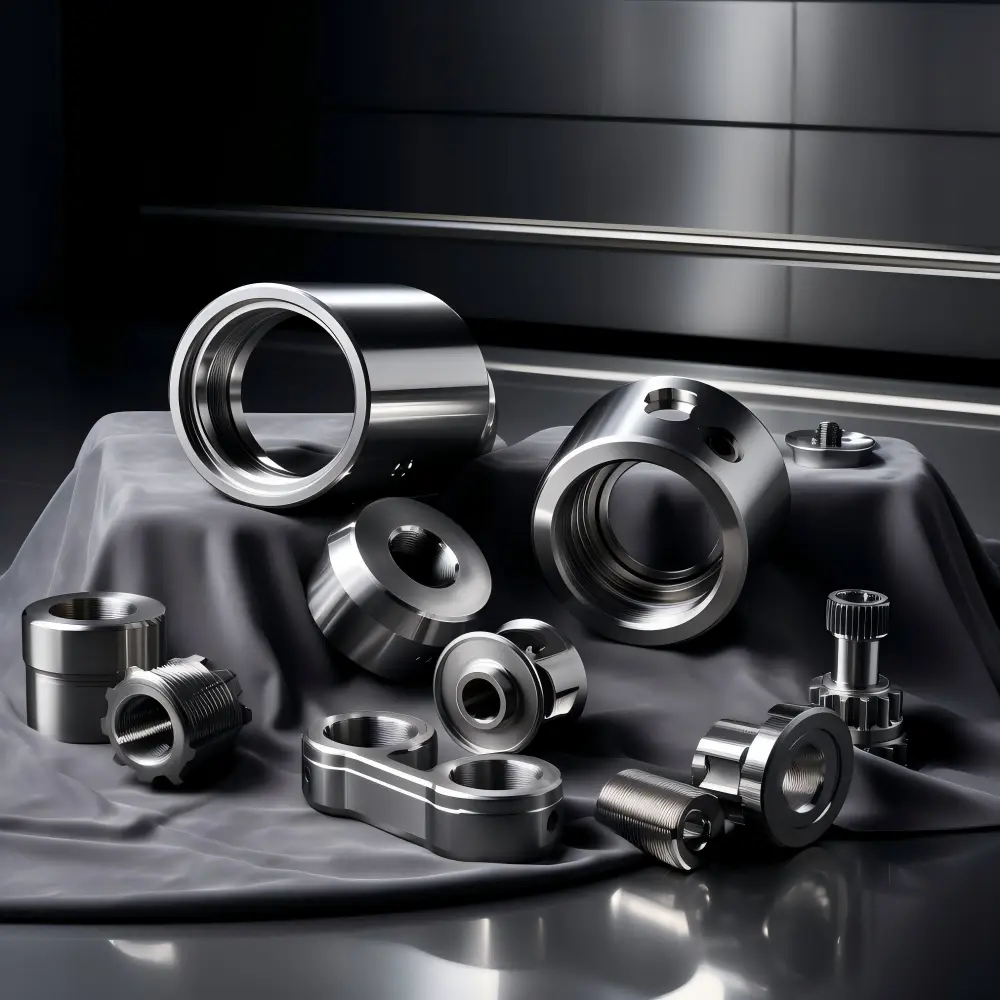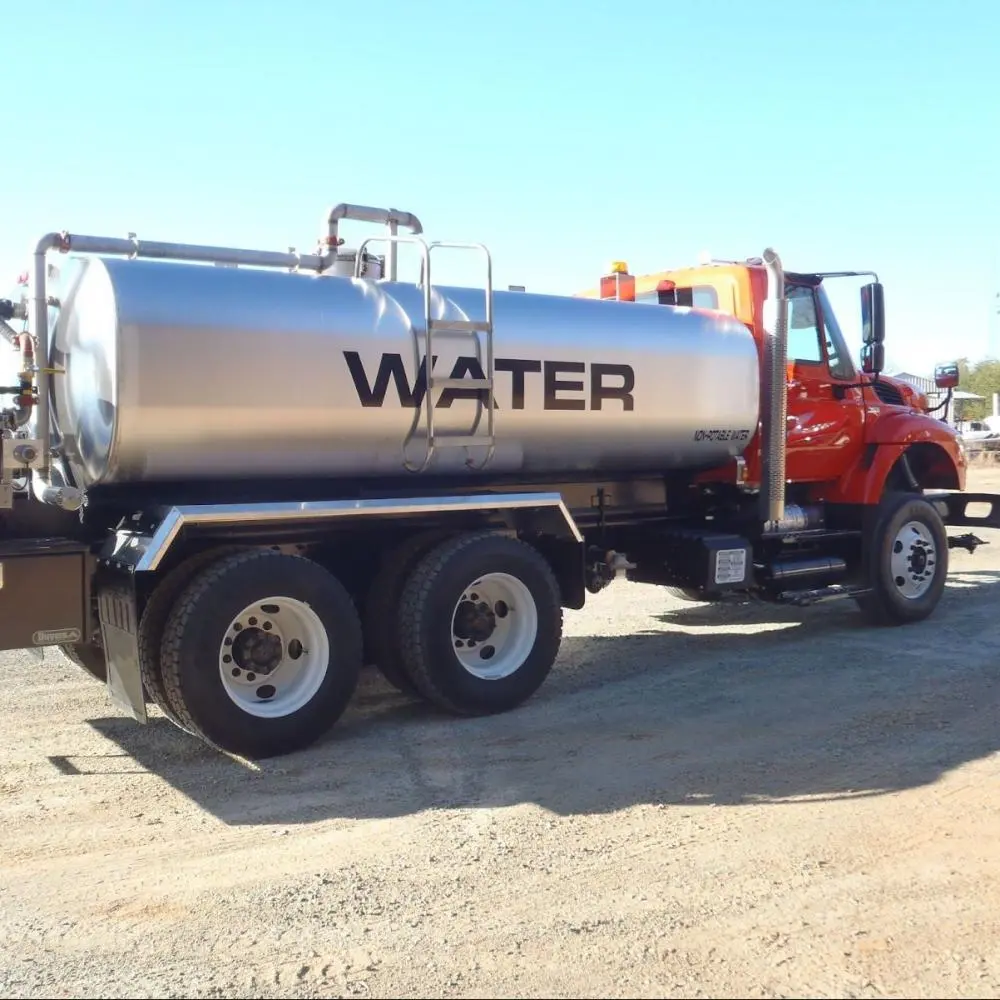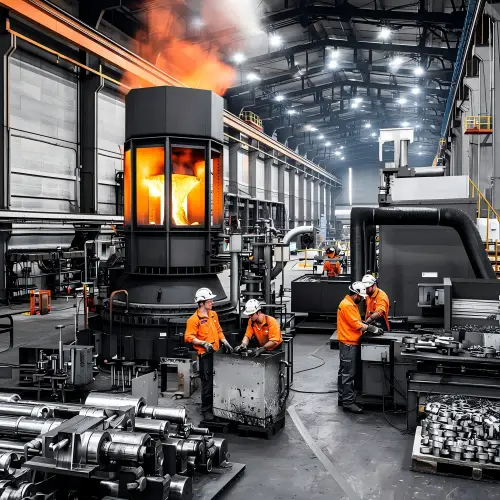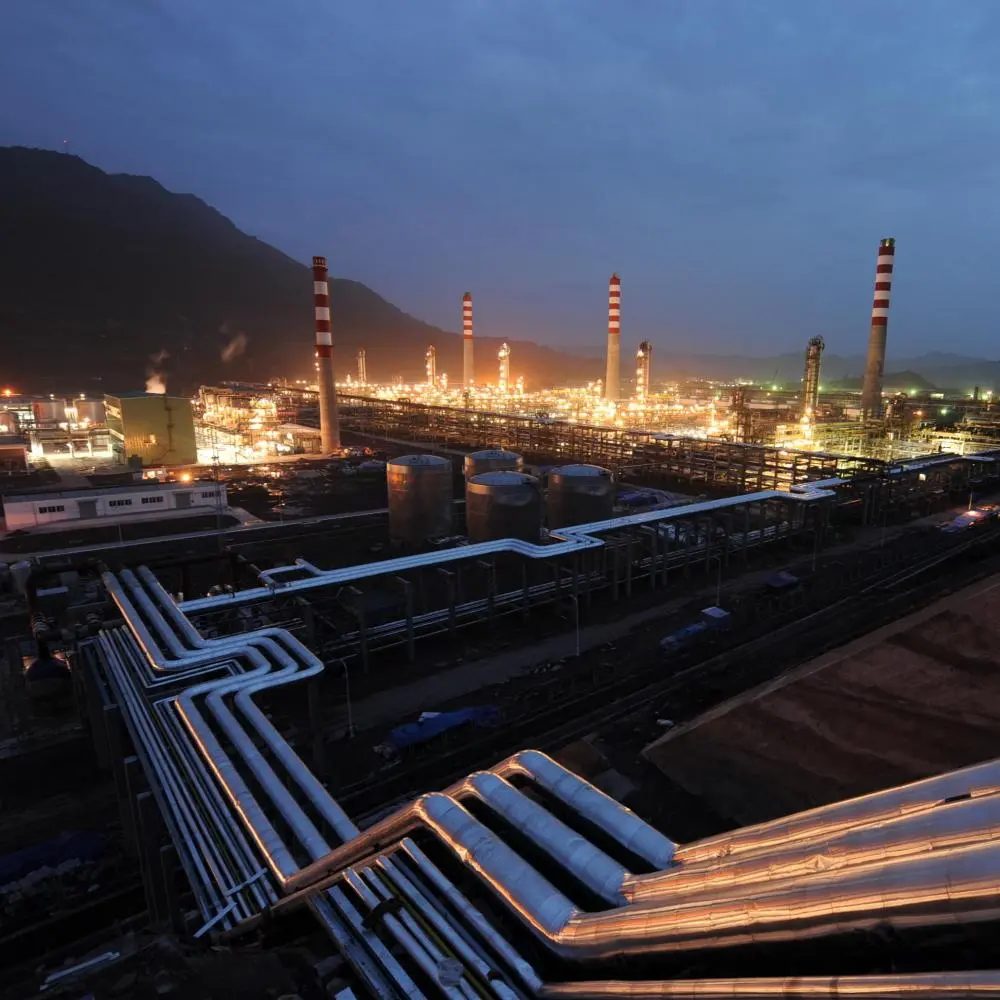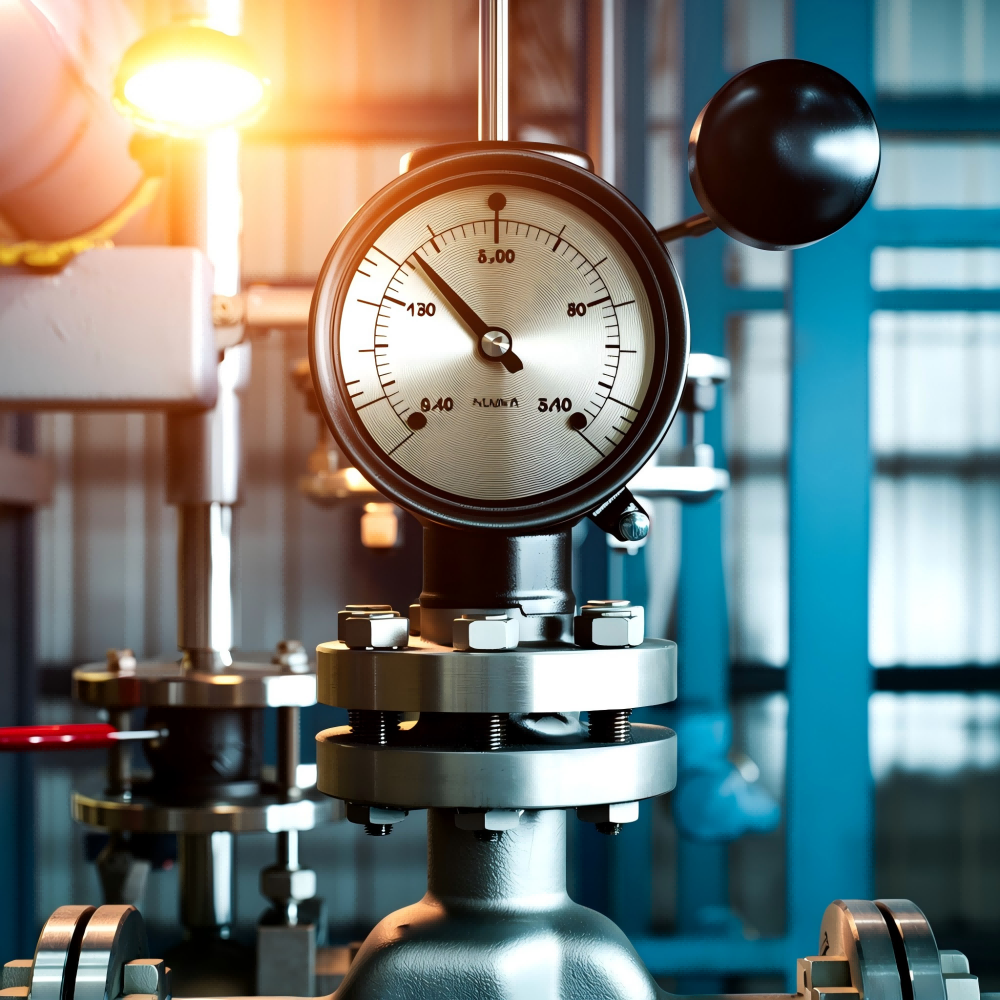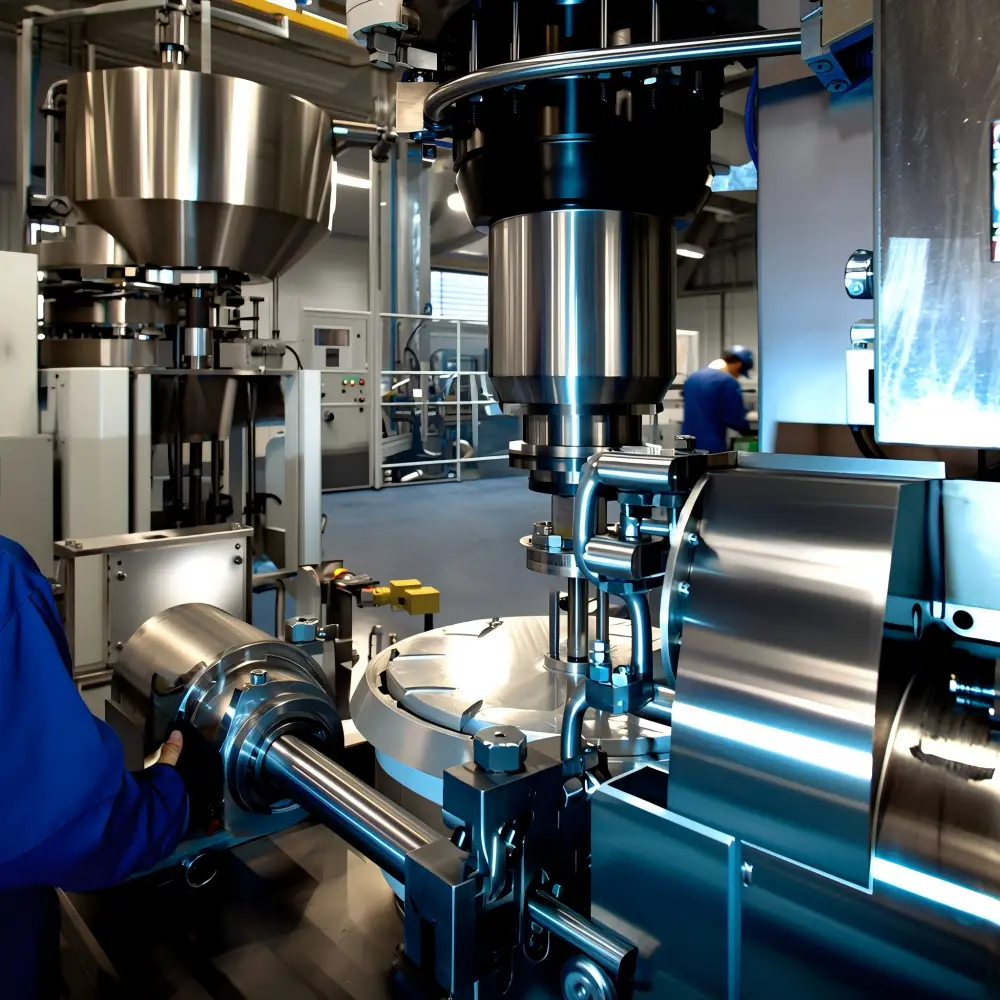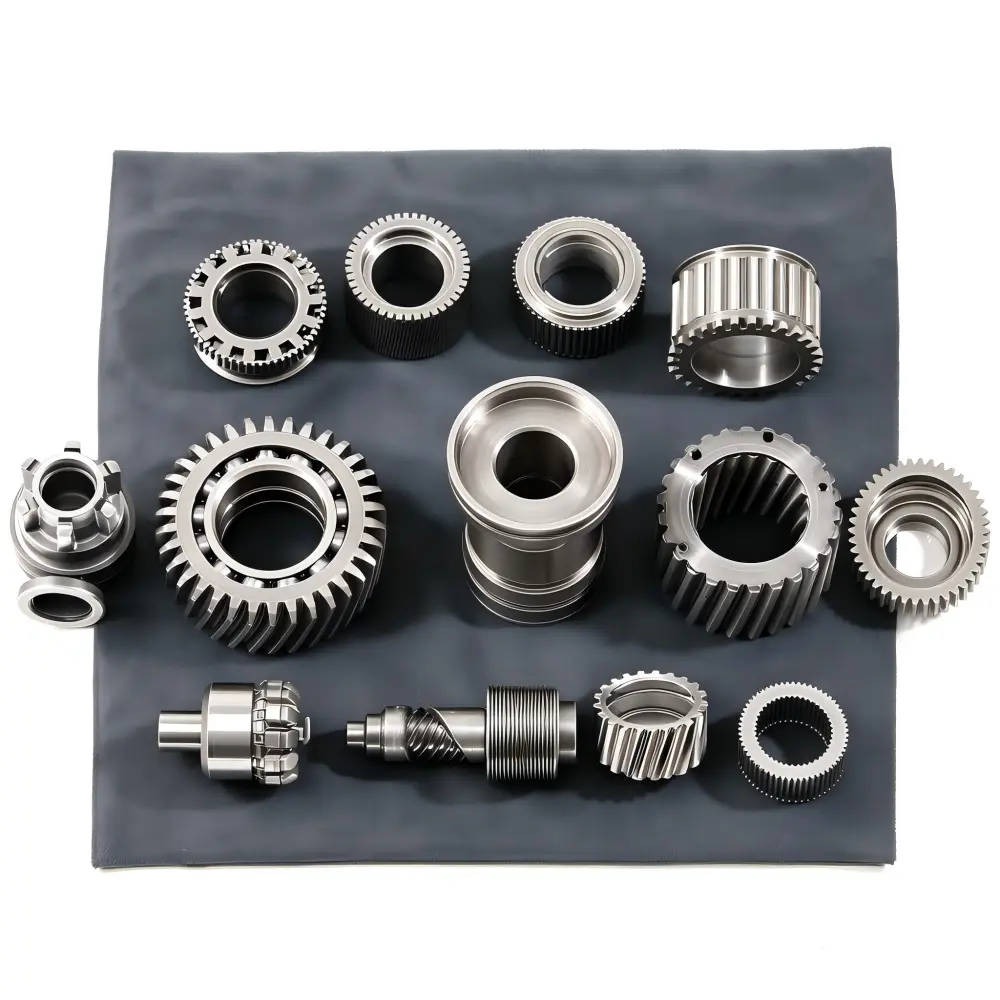Recycling Tin Bronze Scrap: Sustainable Practices for Eco-Friendly Foundries
Recycling tin bronze scrap plays a vital role in building a sustainable future. Foundries that embrace eco-friendly practices not only conserve resources but also reduce energy consumption and pollution. For example, recycling uses about 70% less energy than producing new materials, significantly lowering greenhouse gas emissions. Here's a closer look at the benefits:
| Benefit | Description |
|---|---|
| Resource Conservation | Reduces the need for mining and processing tin ores, preserving natural resources. |
| Energy Savings | Uses about 70% less energy compared to primary production, lowering greenhouse gas emissions. |
| Waste Reduction | Minimizes landfill waste, supporting a circular economy by extending product lifecycles. |
| Pollution Reduction | Produces less pollution than raw material extraction, contributing to cleaner air and water. |
| Economic Value | Provides a revenue stream for plumbers, making recycling a profitable choice. |
Ningbo Pingheng Machinery Co., Ltd., established in 1999, exemplifies this commitment to sustainability. Using the investment casting process, they produce high-quality tin bronze Precision Casting,silicon brass precision casting, and stainless steel castings for industries like automotive and engineering. Their approach highlights how recycling supports lost wax casting stainless steel while reducing waste.
Benefits of Recycling Tin Bronze Scrap
Environmental Benefits of Recycling
Recycling tin bronze scrap offers significant environmental advantages. It reduces the demand for mining and processing raw materials, which helps preserve natural resources. By reusing existing materials, foundries can cut energy consumption by up to 70% compared to producing new metals. This reduction in energy use directly lowers greenhouse gas emissions, contributing to cleaner air and combating climate change. Additionally, recycling minimizes landfill waste, supporting a circular economy where materials are reused instead of discarded.
Dust collection systems in recycling facilities also play a crucial role. They prevent fine particles from polluting the environment, ensuring cleaner surroundings. Ningbo Pingheng Machinery Co., Ltd., established in 1999, exemplifies these practices. The company uses the investment casting process to produce high-quality tin bronze, silicon brass, and stainless Steel Castings for industries like automotive and engineering. Their commitment to sustainability highlights how recycling supports eco-friendly manufacturing.
Economic Advantages for Foundries
Recycling tin bronze scrap isn't just good for the planet—it’s also a smart financial move for foundries. By reusing materials, companies can significantly reduce the costs associated with purchasing raw metals. This cost-saving measure allows foundries to allocate resources to other areas, such as improving technology or expanding operations. Moreover, selling recycled materials creates an additional revenue stream, making recycling a profitable endeavor.
For example, Ningbo Pingheng Machinery Co., Ltd. benefits economically by using recycled tin bronze in its precision casting process. This approach not only reduces material costs but also ensures high-quality production standards for industries like shipbuilding and power generation.
Enhancing Operational Efficiency
Implementing recycling practices can streamline operations in foundries. Efficient material handling systems reduce spillage and waste, ensuring that every ounce of material is utilized effectively. Recycling also conserves raw materials, decreasing the need for extensive mining and processing. Dust collection systems further enhance efficiency by maintaining a clean and safe working environment.
These practices align with the precision casting process used by Ningbo Pingheng Machinery Co., Ltd. Their focus on recycling tin bronze scrap not only supports sustainable manufacturing but also improves operational workflows. By adopting these methods, foundries can achieve higher productivity while minimizing their environmental footprint.
Sustainable Practices for Recycling Tin Bronze Scrap
Collection and Sorting Techniques
Effective recycling begins with proper collection and sorting of tin bronze scrap. Foundries use advanced sorting systems to separate metals based on their composition. This ensures that only high-quality scrap enters the recycling process. Manual sorting, combined with automated technologies like magnetic separators and spectrometers, helps identify and isolate tin bronze from other materials. These techniques reduce contamination and improve the efficiency of recycling operations.
Ningbo Pingheng Machinery Co., Ltd., established in 1999, exemplifies these practices. The company adopts the investment casting process, also known as the precision casting process, to produce components from tin bronze, silicon brass, and stainless steel. By ensuring proper sorting, they maintain the quality of their castings for industries like automotive and engineering.
Advanced Remelting and Refining Processes
Once sorted, tin bronze scrap undergoes remelting and refining. Foundries use energy-efficient furnaces to melt the scrap, ensuring minimal energy consumption. During this process, impurities are removed to produce high-quality recycled metal. Advanced refining techniques, such as fluxing and degassing, further enhance the purity of the material. These methods ensure that recycled tin bronze meets the stringent standards required for precision casting.
Ningbo Pingheng Machinery Co., Ltd. incorporates these processes into their production. By using recycled tin bronze, they create durable components for industries like shipbuilding and power generation. This approach not only reduces costs but also supports sustainable manufacturing.
Waste Minimization Strategies
Minimizing waste is crucial for sustainable recycling. Foundries adopt sand reclamation systems to recover up to 90% of used sand, reducing the need for new sand production. Material recovery processes reclaim valuable metals from discarded melts, lowering waste volume and raw material costs. Efficient material handling systems prevent spillage, while dust collection systems capture fine particles, protecting the environment.
These strategies align with the practices of Ningbo Pingheng Machinery Co., Ltd. Their focus on waste reduction and recycling ensures that resources are conserved and environmental impact is minimized. By adopting such measures, foundries contribute to a circular economy and promote eco-friendly manufacturing.
Tin Bronze Precision Casting and Recycling
Role of Recycled Tin Bronze in Precision Casting
Recycled tin bronze plays a crucial role in precision casting. Foundries rely on this material to produce high-quality components while reducing their environmental footprint. By using recycled tin bronze, they conserve natural resources and minimize the need for mining raw materials. This approach aligns with the principles of sustainability and supports industries like automotive, shipbuilding, and engineering.
Ningbo Pingheng Machinery Co., Ltd., established in 1999, exemplifies this practice. The company uses the investment casting process, also known as the precision casting process, to create components from tin bronze, silicon brass, and stainless steel. Their commitment to recycling ensures that their products meet industry standards while promoting eco-friendly manufacturing.
Advantages of Using Recycled Materials in Casting
Using recycled materials in casting offers several advantages. Foundries save significant energy compared to using virgin metals. For instance:
- Recycled metals can save up to 90% of energy during production.
- Aluminum and copper recycling achieves over 90% energy savings.
- Steel recycling reduces energy consumption by more than 50%.
- Recycled metals require 40% less water in the production process.
These benefits translate into lower production costs and reduced environmental impact. Ningbo Pingheng Machinery Co., Ltd. leverages these advantages to produce durable components for industries like power generation and engineering machinery. Their use of recycled tin bronze ensures high-quality results while supporting sustainable practices.
Supporting a Circular Economy in Metal Casting
Recycling tin bronze scrap is a cornerstone of the circular economy in metal casting. This approach focuses on reusing materials to reduce waste and conserve resources. The benefits of this model include:
| Benefit | Description |
|---|---|
| Resource Conservation | Reduces the need for mining and processing tin ores, preserving natural resources. |
| Energy Savings | Uses about 70% less energy compared to primary production, lowering greenhouse gas emissions. |
| Waste Reduction | Minimizes landfill waste, extending the lifecycle of tin products. |
| Pollution Reduction | Produces less pollution than raw material extraction, contributing to cleaner air and water. |
Ningbo Pingheng Machinery Co., Ltd. embodies these principles by adopting sustainable practices in their precision casting process. Their focus on recycling and waste reduction not only enhances their operational efficiency but also strengthens their reputation as a leader in eco-friendly manufacturing.
Challenges and Solutions in Recycling Tin Bronze Scrap
Addressing Common Recycling Obstacles
Recycling tin bronze scrap comes with its own set of challenges. One major issue is contamination. Scrap often contains impurities or mixed metals, which complicates the recycling process. Foundries must invest in advanced sorting technologies to ensure the purity of materials. For example, tools like X-ray fluorescence (XRF) analysis and optical sorting systems can quickly identify and separate metals, improving efficiency.
Another challenge is the high energy demand during remelting. While recycling uses less energy than producing new metals, it still requires significant resources. Adopting energy-efficient furnaces can help reduce fuel consumption and greenhouse gas emissions. Dust and particle pollution also pose risks. Dust collection systems are essential for capturing fine particles and preventing environmental contamination.
Ningbo Pingheng Machinery Co., Ltd., established in 1999, addresses these challenges through its precision casting process. By using advanced sorting and refining techniques, the company ensures high-quality production while minimizing waste.
Innovative Technologies for Sustainable Recycling
Emerging technologies are transforming tin bronze recycling into a more sustainable process. Foundries are adopting methods like urban mining, where metals are extracted from discarded products, and upcycling, which turns scrap into higher-value materials. Closed-loop systems are also gaining traction, allowing materials to be reused indefinitely without losing quality.
Other innovations include energy-efficient furnaces and water recycling systems. These technologies reduce energy and water usage, lowering the environmental impact. Renewable energy sources like solar and wind power further enhance sustainability. Automation technologies, such as robotic sorting systems and AI, improve the speed and accuracy of metal recovery. As Nguyen (2022) noted, "AI is revolutionizing the recycling industry by enhancing the speed and efficiency of sorting processes, ultimately leading to higher recovery rates."
Ningbo Pingheng Machinery Co., Ltd. incorporates many of these technologies into its operations. By leveraging sustainable solutions, the company produces high-quality components for industries like shipbuilding and engineering machinery.
Collaboration Across the Supply Chain
Partnerships play a vital role in improving recycling efficiency. Foundries that collaborate with recyclers can streamline their processes and maximize the value of scrap materials. This approach reduces waste, lowers costs, and enhances logistics. For example, refining scrap at its source generates more value and minimizes emissions.
Working with technology providers and research institutions also benefits foundries. These partnerships give access to innovative solutions, such as advanced sorting systems and renewable energy technologies. Ningbo Pingheng Machinery Co., Ltd. exemplifies this collaborative approach. By working closely with suppliers and adopting cutting-edge practices, the company supports sustainable manufacturing while meeting industry standards.
Case Studies: Foundries Leading in Sustainability

Example 1: Circular Economy Implementation
Some foundries have embraced circular economy principles to reduce waste and maximize resource efficiency. They’ve established industrial symbiosis networks, where byproducts and waste materials from one industry become raw materials for another. This approach not only minimizes environmental impact but also creates new revenue streams. For instance, leftover sand from casting processes can be repurposed for construction, while scrap metals are reused in production cycles. These practices demonstrate how foundries can turn waste into valuable resources, supporting both sustainability and profitability.
Ningbo Pingheng Machinery Co., Ltd., established in 1999, exemplifies this commitment. The company uses the investment casting process, also known as the precision casting process, to produce components from materials like tin bronze and silicon brass. By adopting circular economy strategies, they provide high-quality solutions for industries such as electric power and shipbuilding while conserving resources.
Example 2: Energy-Efficient Recycling Technologies
Energy-efficient technologies have revolutionized recycling in foundries. Many now use sand reclamation systems to recover up to 90% of used sand, significantly reducing the need for new sand production. Material recovery processes reclaim valuable metals from discarded melts, cutting waste and lowering raw material costs. Additionally, energy management systems optimize energy consumption, reducing operational costs and carbon footprints.
Ningbo Pingheng Machinery Co., Ltd. integrates these technologies into its operations. By using recycled tin bronze in their precision casting process, they produce durable components for industries like engineering machinery and automobiles. This approach highlights how energy-efficient recycling supports sustainable manufacturing.
Lessons from Successful Foundries
Successful foundries offer valuable lessons in tin bronze recycling. They prioritize waste reduction by reusing scrap metal, including leftover bronze, in production cycles. Efficient material handling systems minimize spillage, while dust collection systems prevent environmental contamination. These practices not only conserve raw materials but also maintain high production standards.
Ningbo Pingheng Machinery Co., Ltd. demonstrates these principles in action. Their focus on recycling and sustainability ensures they meet industry demands while contributing to a circular economy. Foundries looking to improve their processes can learn from these strategies to enhance both efficiency and environmental responsibility.
Recycling tin bronze scrap offers immense environmental, economic, and operational benefits. Foundries can reduce waste, save costs, and enhance efficiency by adopting sustainable practices. For example:
- Better growth and cost savings.
- Improved brand reputation through environmental responsibility.
- Stronger stakeholder relationships.
Ningbo Pingheng Machinery Co., Ltd., established in 1999, exemplifies these principles. Using the precision casting process, they produce high-quality components for industries like electric power and shipbuilding. By embracing energy-efficient furnaces, water recycling systems, and renewable energy, foundries can lower emissions and support a greener future. Promoting sustainability isn’t just good for the planet—it’s a smart business move. 🌍
FAQ
What is the role of Ningbo Pingheng Machinery Co., Ltd. in sustainable casting?
Ningbo Pingheng Machinery Co., Ltd., established in 1999, uses the precision casting process to recycle tin bronze and other alloys. They provide eco-friendly solutions for industries like power and shipbuilding.
How does recycling tin bronze scrap benefit foundries?
Recycling reduces raw material costs, saves energy, and minimizes waste. Foundries like Ningbo Pingheng Machinery Co., Ltd. use recycled materials to create high-quality components efficiently.
Can recycled tin bronze meet industry standards?
Yes, advanced refining processes ensure recycled tin bronze meets strict standards. Ningbo Pingheng Machinery Co., Ltd. produces durable components for industries like automotive and engineering machinery using recycled alloys.






